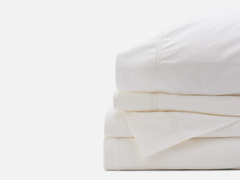
Isn't it funny that after all these years we are still debating what the best detergent is to clean our linens? From the bargain jugs of detergent at the grocery store to the teeny tiny bottles of luxury suds in the local mercantile, we are faced with a multitude of buying options with little to no real differentiation between them other than "dyes" "perfumes" and "colors".
I'm not here to tell you which detergent to use. Maybe I will tackle that later. My sensitive skinned self has been using all® "Free and Clear" for most of my life so I haven't really "branched out". We'll see...
What I do want to talk about it the "sunny side" of soap! Can we all just agree we are glad we aren't washing our clothes with animal fat and ashes? Imagine the nastiness left over from that washing. (And we worry about detergent residue now!) Because I like history and I love old vintage advertising, I wanted to explore one of the first commercially marketed "detergents", Sunlight Soap.
It All Started In A Grocery Store Isle
William Hesketh Lever was an English grocer. Interestingly enough, they were selling a soap in their stores that had been made especially for them. That soap was called "Lever's Pure Honey". (Don't you know that would sell like CRAZY right now at farmers markets!? Someone should bring that product name back!) This particular soap was invented by a chemist named William Hough Watson. This soap used glycerin and vegetable oils as opposed to traditional animal fat. (remember Fight Club? Disgusting.)



Anyhow... ready for a career change, Lever decided to start marketing his own soap. (Wouldn't you know it was all about the "marketing"?) The success wasn't all about what was inside the soap but what was inside the pretty package. Even though it was a good product (using plant oils as opposed to lard) the real success of the soap came from the branding and packaging of those cute little bars. And that is probably true to most of our soaps and detergents today.
Lever's aspired to: 'to make cleanliness commonplace; to lessen work for women; to foster health and contribute to personal attractiveness, that life may be more enjoyable and rewarding for the people who use our products'. That is one heck of a mission statement.
To mix up this great lather in the tub, you could either grate the bar of soap so it would flake into the water or use a fancy wire mesh holder and stick it into your boiling water. If you were really fancy, you could get the ready-made soap flakes in a box. But then you wouldn't get that sweet little tin. And it is all about the shelf appeal! Who wouldn't buy their detergent in a package like that?


As living standards rose, so did the standard of "cleanliness". In addition, fashion and home trends pushed for clothing and linens that were whiter and brighter. All of this lead to an increased consumption of laundry soaps. And we are STILL trying to get our white's whiter and our brights brighter! Whether it's with bleach or Oxi-Clean, the hunt is never over... even in 2016.
Coming To America
And the truths just keep coming! Naturally, the next move was to come to America and sell these great soaps! However, in true American form, we preferred large bars of soap because it seemed like a better deal than the small bars of Sunlight. Sadly, Sunlight never really found a home in the USA.




But of course, we all still know the "Lever" name. Now a major conglomerate, Unilever still helps keep us clean. Brands like Dove, Vaseline, Caress, Suave and Saint Ives still keep us bright! However, they aren't necessarily American Made. Unilever is headquartered in the UK.
Looking for an "American Made" laundry detergent? Sun Products’ all®, Snuggle®, Sunlight®, Wisk® and Surf® brands were acquired from Unilever when it divested its North American laundry detergents unit in 2008. Enjoy the bubbles, everyone!








